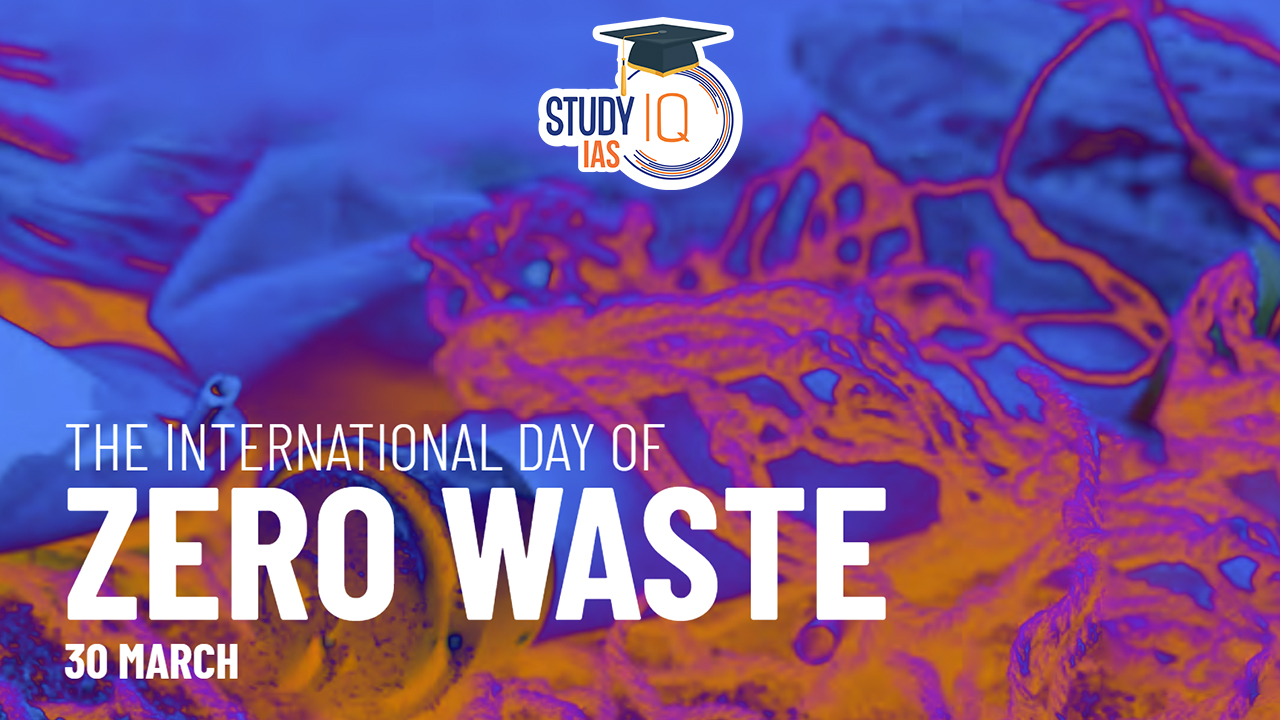Table of Contents
The International Day of Zero Waste, observed annually on March 30th, serves as a poignant reminder of the urgent need to address escalating waste management challenges globally. Established through a resolution adopted by the United Nations General Assembly, this day underscores the importance of promoting sustainable consumption and production patterns to mitigate the detrimental impacts of waste pollution.
International Day of Zero Waste 2024
- The International Day of Zero Waste is observed annually on March 30th.
- Established by a United Nations resolution on December 14, 2022, it emphasizes waste reduction and sustainable consumption.
- Zero-waste initiatives are pivotal in achieving sustainable development goals.
- With global waste generation at alarming levels, the need for action is urgent.
- Embracing circular economy practices can minimize ecological footprints and promote sustainable living.
- Let us prioritize waste prevention and work towards a more sustainable future on this International Day of Zero Waste 2024.
International Day of Zero Waste 2024 Overview
| International Day of Zero Waste 2024 Overview | |
| Date | March 30, 2024 |
| Initiated By | United Nations General Assembly |
| Resolution Date | December 14, 2022 |
| Purpose | To promote waste reduction and sustainable consumption |
| Importance | Key in achieving sustainable development goals |
| Focus | Zero-waste initiatives and circular economy practices |
| Global Impact | Addressing alarming levels of waste generation |
| Call to Action | Prioritize waste prevention and sustainable living |
| Goal | Build a more sustainable future for al |
| Join Us on Whatsapp | Click to Join |
International Day of Zero Waste 2024 Theme
The theme for the International Day of Zero Waste 2024 is “Towards a Circular Future.” This theme underscores the importance of transitioning towards a circular economy model to address the pressing challenges of waste pollution and unsustainable consumption patterns. By embracing circularity, societies can minimize waste generation, conserve resources, and promote sustainable development. The theme emphasizes the need for collective action and innovative solutions to build a more resilient and equitable future for all.
Urgency of Waste Management
According to the UN Environment Programme (UNEP), humanity generates an astonishing 2.1 to 2.3 billion tonnes of municipal solid waste each year. Shockingly, millions lack access to proper waste collection services, exacerbating the threat posed by waste pollution to human well-being, economic prosperity, and environmental stability.
Triple Planetary Crisis
Waste pollution contributes significantly to the triple planetary crisis of climate change, nature and biodiversity loss, and pollution. Urgent action is imperative to curb waste generation and mitigate its adverse effects on the planet and its inhabitants.
Emergence of Zero-Waste Initiatives
In response to mounting waste challenges, zero-waste initiatives have gained prominence as effective strategies for promoting sound waste management practices. These initiatives prioritize prevention, reduction, reuse, repurposing, and recycling to minimize waste accumulation and foster sustainable resource utilization.
Aligning with Sustainable Development Goals
Zero-waste principles align closely with the objectives outlined in the 2030 Agenda for Sustainable Development, particularly Sustainable Development Goals 11 and 12. These goals address various forms of waste, including food loss and waste, natural resource extraction, and electronic waste, underscoring the interconnectedness of waste management and sustainable development.
Promoting Collective Action
As we commemorate the International Day of Zero Waste, it is imperative that we reaffirm our collective commitment to building a world where waste is minimized, resources are conserved, and environmental integrity is preserved. Through collaborative efforts and unwavering determination, we can usher in a sustainable era of prosperity and well-being for all.
Conclusion
The International Day of Zero Waste serves as a poignant reminder of the imperative to address waste pollution and promote sustainable consumption and production patterns. By embracing zero-waste initiatives and fostering collective action, we can pave the way for a more equitable, resilient, and sustainable future for present and future generations.


 List of Indian State Animals with their ...
List of Indian State Animals with their ...
 World Heritage Day 2025, Theme, Objectiv...
World Heritage Day 2025, Theme, Objectiv...
 World Hemophilia Day 2025: Theme, Histor...
World Hemophilia Day 2025: Theme, Histor...





















